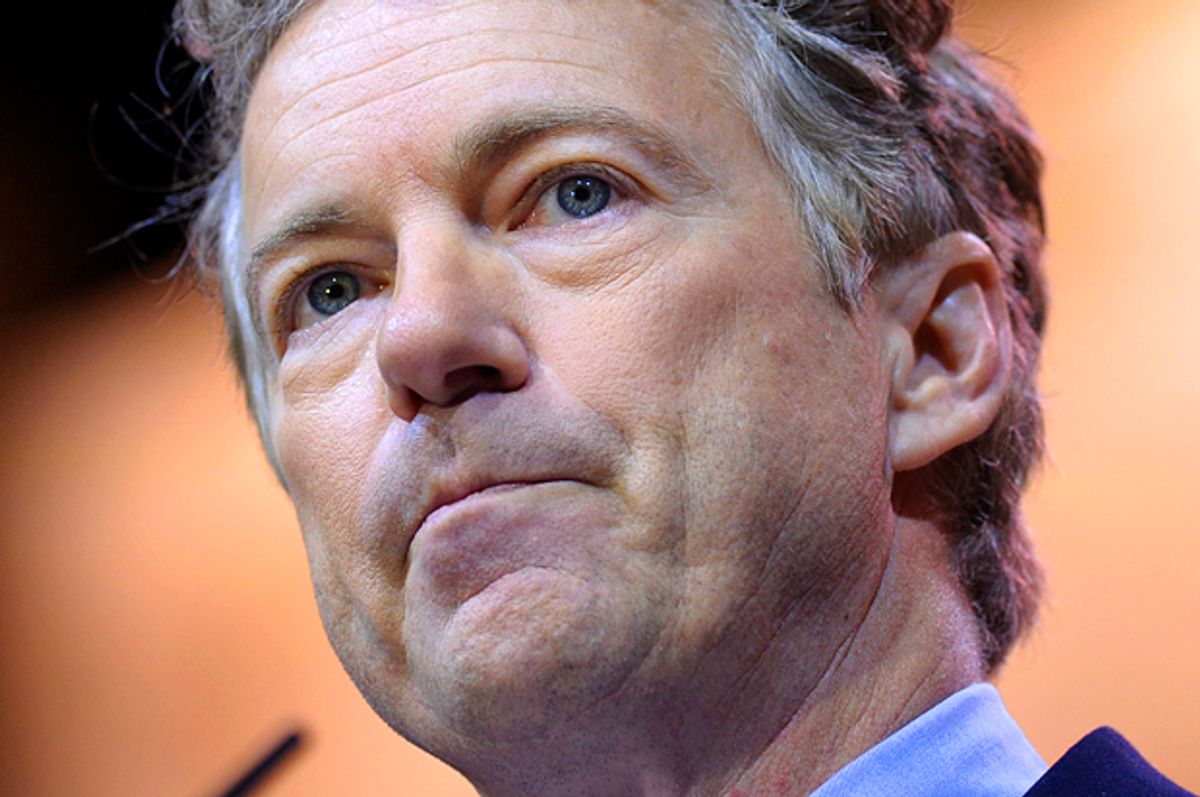 For years, the Social Security and Medicare systems have been under assault from the Republican Party, which views the programs as irredeemable socialist institutes. In the Bush years, this attack took the form of introducing privatization that would slowly move Social Security away from the government altogether.
For years, the Social Security and Medicare systems have been under assault from the Republican Party, which views the programs as irredeemable socialist institutes. In the Bush years, this attack took the form of introducing privatization that would slowly move Social Security away from the government altogether.
Having failed at that, Republicans are slowly refocusing around a new way to target both of these retirement programs: raising the age that people are eligible to take advantage of them. As of this writing, the top expected GOP candidates for the presidency have all endorsed or floated plans that would raise the retirement age.
Proponents of this move insist that people are living longer, so it's reasonable to raise the age when they retire. The problem is, these gains in life expectancy are far from equal. Research by the Center for Economic and Policy Research shows that the bottom half of the population in terms of income has seen very little growth in life expectancy:
Raising the retirement age saves very little money – it would be much more efficient simply to lift the payroll tax cap so that the very rich have to pay taxes on all of their income rather than just the first $117,000. Doing so would ensure there is no shortfall of financing for Social Security for generations.
In short, these plans makes little economic sense; they would keep older Americans in the labor pool longer, freezing them in positions that younger workers would therefore be denied, and represent a challenge to the traditional ethics about the necessity for society to take care of the elderly. But in a Republican Party whose top donors are the Koch brothers, who once advocated eliminating Social Security and Medicare altogether, it's not expected.
Rand Paul: The junior senator from Kentucky says raising the retirement age is the “only way” to manage possible funding shortfalls in the future. Paul bluntly told an Iowa audience that life expectancy is now 80 years old, but this simply isn't true for many Americans. Black men, for example, have a life expectancy of closer to 71 years.
Lindsey Graham: Sen. Lindsey Graham (R-SC) has yet to declare, but he is strongly considering a White House bid, saying only the amount of money it takes to win is an obstacle. At the end of 2012, Graham threatened to refuse to raise the debt ceiling unless the age of retirement for Social Security was hiked, saying that the “debt problems” of the country must be dealt with first. Yet Social Security doesn't add a dime to the deficit, as even GOP PresidentRonald Reagan admitted.
Chris Christie: Christie put out the most detailed plan for Social Security and Medicare of any of the nominees, calling for a new retirement age of 69 (it is currently 65 and on its way to being hiked to 67). He also has the wrinkle of means-testing the program, paring back benefits for those earning $80,000 of additional income and eliminating them at $200,000, a move that is likely to put the upper echelons of the middle class and everyone above that against everyone below.
Jeb Bush: Bush announced his support for raising the retirement age last week. His brother George W. Bush was the president who overreached in trying to privatize Social Security, dealing his party huge losses.
Democratic Pushback
As the Republicans are settling on a more modest form of Social Security cuts than their last venture, Democrats are actually positioning to expanding the program. Forty-two Democratic senators voted for an amendment to do so, and possible 2016 candidates Bernie Sanders and Martin O'Malley have bothexpressed support for this position. Meanwhile, Hillary Clinton has stepped up her defense of the program.
At this rate, the 2016 presidential campaign may expose diametric views of America's retirement programs. The Democrats are coalescing around a position that says Americans need more help to have secure retirements, while the Republicans seem to be saying that Americans should simply put off retiring.

Shares